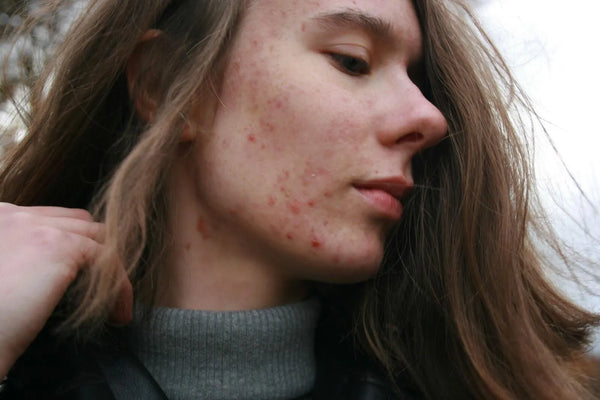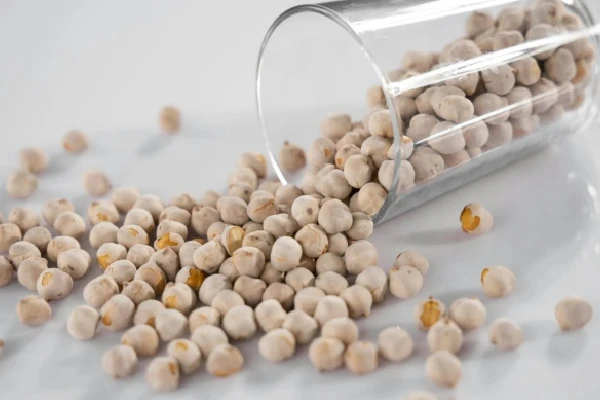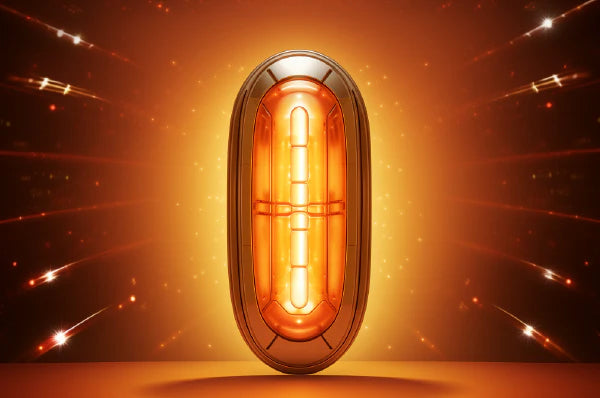Why Is My Poop Green?
Thursday Aug 25, 2022

When you check the toilet and notice a greenish stool color staring back at you, it can be a bit unnerving and cause you to think all sorts of crazy things.
Fortunately, green poop isn't always a cause for concern. In fact, there are many reasons why you might experience green stools.
So, let's take a look at common reasons why your bowel movement might turn green.
Green Poop Bad?
Odds are you're fine and have absolutely nothing to worry about with green poop. And it could be due to a variety of reasons, such as:
- Recent changes to your diet
- Food moving faster through your intestines, which means the bile that typically turns poop brown instead makes it green. Lifestyle changes like getting more exercise and not getting enough sleep can also cause poop to move through your intestines faster, the end result being green poop.
- Underlying stomach conditions like irritable bowel syndrome (IBS) or inflammatory bowel syndrome. (IBD).
What Causes Green Poop?
From the food you eat to the health conditions you have, here are 5 of the most common reasons for green poop:
1. Your diet
Changes to your diet is one of the most common causes of green poop. Green fruits and vegetables, such as green apples, kale, broccoli, and spinach may explain green stools. The chlorophyll in green vegetables is responsible for altering the color of your stool and turning it green.
In general, the color of the foods you eat can influence the color of your poop. Take drinking alcohol , for example. Have you checked out your stool color after drinking green beer on St. Patty's Day? It's probably green from the food coloring.
Or there's Burger King's Halloween Whopper a few years back that turned everyone's poop green, even though the burger had a black bun.
2. Bile
The bile fluid made by your liver is a greenish-yellow color that's main role is to help digest fats. Bile is what turns your poop to the normal brown color but digestive complications, such as diarrhea, cause poop to move too quickly through your intestines. When this happens, bile can't be broken down to give your poop its common brown color, so your stool remains green.
The keto diet has been known for causing green stools. The higher fat content causes more bile to be produced.
3. Antibiotics & Medication
A side effect of antibiotics is that they can actually destroy healthy bacteria in your gut. The healthy bacteria in your small intestine help turn your poop into its standard brownish color.
A diet rich in probiotic and prebiotic foods can help produce more "good bacteria" in your gut and balance out your gut microbiome.
4. Bad microbes, viruses, and parasites
Your gut contains many trillions of bacteria as it is. You have the good kind of bacteria and then there are the bad microbes that inhabit your gut. You also have bad bacteria, viruses, and parasites coming in from the outside to cause all sorts of chaos in your gut.
For example, bad bacteria like Salmonella or E. coli (most commonly associated with food poisoning), tapeworms, and norovirus accelerate the digestion process, resulting in a greenish stool color.
5. Digestive conditions
With most gastrointestinal conditions, the main reason for green poop comes from bile moving through your intestines too quickly. Remember, this makes your poop remain green instead of turning into its usual brown stool color. Green poop may be a byproduct of health conditions like celiac disease, Crohn's disease or ulcerative colitis, and irritable bowel syndrome.
What About Other Stool Colors?
Your stool color is like the rainbow. Different colors can pop up at different times. Here are some other colors you might see in your poop and what they mean:
- Brown poop - This is the typical color of your stool and is widely considered the "healthy" poop color.
- Yellow poop - This shade typically isn't a cause for alarm. It's actually quite common, especially among babies who are breastfeeding. But greasy, yellowish-looking poop with a bad odor could indicate your body is having problems digesting food. Another point about yellow poop is that celiac disease could turn your stool this color. Eating foods that contain gluten may impact your intestines in a way that turns your poop yellow.
- Black poop - Eating darker foods like black licorice? Your diet could be the reason for black poop. Or, the supplements you're taking could be causing a darker-colored stool. Iron supplements specifically have been known for causing a blackish stool color.
- Red poop - If you don't think it's something you ate (like beets, tomato soup, or a red beverage), this could mean bleeding in the GI tract from anal fissures, inflammatory bowel disease (IBD), or ulcers. The aforementioned are just a few conditions that may occur if your stool is darker purple in color. However, if the blood in your stool is bright red, it may indicate bleeding during the movement of the bowels, which can be due to constipation and hard stools.
- White or pale poop - It might be the case that there's not much color to your poop. White or clay-colored poop isn't typically the result of your diet. Medicines like Pepto-Bismol can give way to white or pale-colored poop. White-colored poop could also point to you not having enough bile in your stool. There may be a more serious condition at the root cause, such as liver disease.
Key Takeaways
It can be distressing seeing an unexpected green stool color staring back at you when you look in the toilet. But all in all, it's usually not a cause for concern.
Most of the time, your green poop is the result of dietary changes (like eating more green fruits and vegetables), taking a new medication, or digestive conditions like IBS, IBD, or celiac disease.
If you're worried about your stool color, be sure to bring your concerns up with your healthcare provider. We all poop so there's nothing to be ashamed of!
Speaking of poop, is constipation an issue for you? Are you backed up and desperate for relief? Check out our post on natural stool softeners to take back control of your bowels, get regular again, and end your bout with constipation.
About the Author
Chad Richardson is a freelance writer from Cincinnati, OH who also enjoys going to the gym and doing his best Arnold Schwarzenegger impersonation, scrolling through Netflix trying to find a new binge-worthy show, and catching a game to root on his hometown sports teams.


